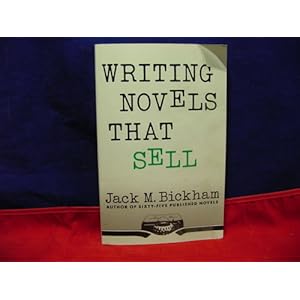Following is a letter I recently emailed to friend
and peer, the talented novelist C.J. Martin. His friends call him Clay
Boutwell.
Hi, Clay:
Thanks so much for sending me
information from your notes about “Rivet your Readers with Deep Point of View”
by Jill Elizabeth Nelson. Really great stuff. I think I might either contact
her or paraphrase some of her advice in an upcoming blog.
Jack was a stickler for adhering to logical actions and reactions in fiction. He called it the law of “Stimulus and Response.” I hope I can do the theory justice, but please assume any errors or failures in the message are due to my interpretation, not his sage advice.
Stimulus and Response:
A. Make sure your character doesn’t jump, smile or scream
until you have provided him or her with the stimulus to do so.
a.
John smiled at
David’s stupid joke (wrong).
b.
David told a stupid
joke. John smiled (right).
c.
The only exceptions—to
be used sparingly—would be to draw out tension, i.e. the girl turns and
screams…then you describe what she sees. Use of this incorrect
reaction before action can, however, ultimately break stimulus/response and weaken your
novel. Readers won’t know why exactly, but they may start to feel the story is
not believable.
B. Make sure your stimulus follows your response closely in most cases.
a. Driverless, the car rolled back and picked up speed, straight for Suzie. Thinking about the D she got in Algebra and wondering if
David really liked her, she leapt out of the way (wrong).
b.
Driverless, the car rolled back and picked up speed, straight for Suzie. She leapt out of the way (right)
c.
To insert other
actions or information between the cause and corresponding effect tends to mute
and lessen the response.
C. The easiest way to build a scene is to think of it as a tennis match of stimulus and response, i.e.:
“You’re a jerk!”
(Stimulus)
“No, you’re the jerk.”
(Response) Brent threw his open Pepsi can at his friend. (Stimulus)
Darrin ducked (Response),
laughed and raced up the stairs. (Stimulus)
Brent bolted up the
stairs after his friend. (Response)
Many cases of writer’s block are caused by too much stimulus being stacked up, so the author has a difficult time knowing what his or her character should do, i.e.:
“You’re a jerk, and I
want you to tell me what you did with my Play Station game!” Darrin threw
Brent’s science report into the puddle and spit in his face. “I know you are dating
my sister!”
So what happened here is
that poor Brent has too many choices to convincingly react to any of them. Should
he respond to the jerk insult, answer the question about the video game, grab
his report before it’s ruined, wipe the spit from his eye or tell Brent that
his sister is too ugly to date? There is no good choice because the author
stacked up too much stimulus. And many writers stall trying to figure out their
self-created conundrum. This is especially common in action and group scenes. Several
characters take simultaneous actions and make it hard for other characters in the scene to respond to so much
stimuli. It’s always better to play a metered game of tennis so that the reader
and the author can understand a straight forward stimulus and response. Things
can still happen quickly, even with many characters, just in their proper
and understandable order.
I’ll probably toss a version of
this up on my blogJ
‘Happy writing, Clay!




I'm forwarding this to a friend on mine who graduated from the Journalism School at OU. This is excellent advice.
ReplyDeleteThanks for stopping by, Jeff. I have several of Jack Bickham's books in my library. He had a knack for making complex points simple.
ReplyDelete